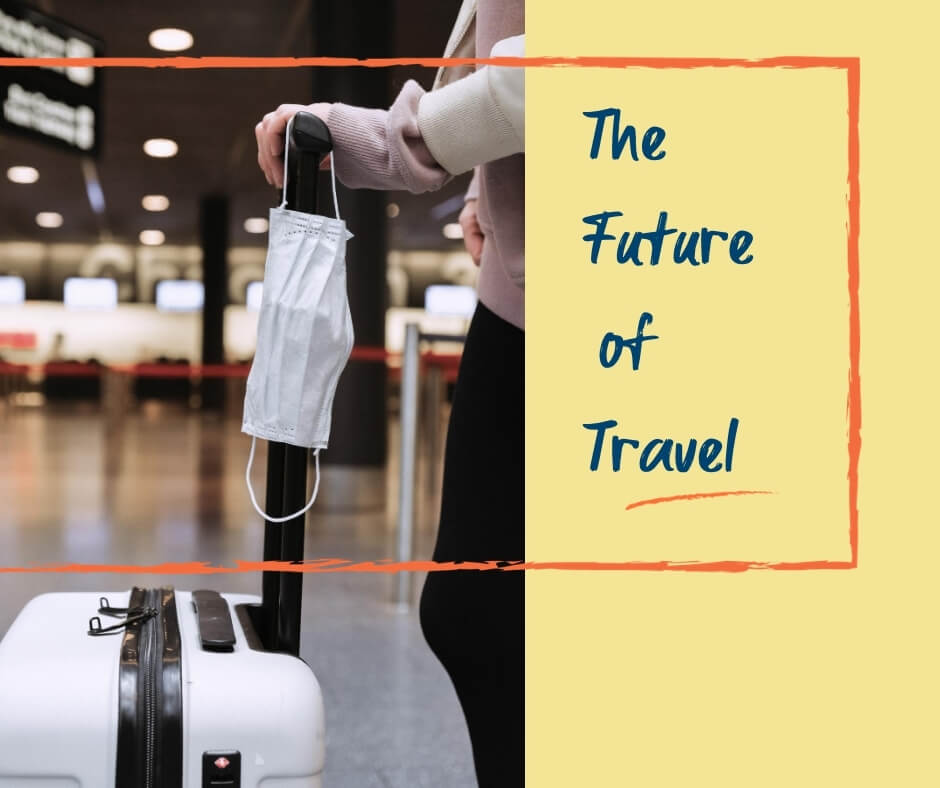The Future of Travel


By: Nanette Fairley
July 28, 2020
“The return of hope and opportunity” is how The Secretary General of the World Tourism Agency described the restarting of tourism. The European Commission has provided unprecedented economic support to the sector, and as destinations throughout the Schengen Zone are once again open, this will have positive impact on economies and livelihoods. Sadly, many countries are much further away from reopening and thus gaining a part of any tourism spend.
I took a domestic flight in Australia last week and it all started as I would have expected. Social distancing throughout the airport and lots of reminders to wash your hands and sanitize etc. Every second chair in the boarding gate was off limits, lounges were shut and 1.5m needed to be observed on the gangway as you boarded. But once on the plane – it was exactly the same as pre-COVID with the exception of a couple of people wearing masks. The flight was full and the measures taken to get to the flight seemed almost hypocritical. But I understand airlines need to recover too and that will be made even harder as investors lose confidence. For example, Warren Buffet sold his entire shareholding in four airlines and he’s not alone.
Without a functioning crystal ball, some of the predictions for the future of travel include:
Travel insurance companies will need to rebuild customer confidence by, for example, making their policies around dealing with pandemics more explicit and cancellations and changes easier.
Health certificates might be required to travel in the future. Visas might be harder to obtain for some destinations and perhaps more vaccinations be required prior to travel. Could antivaxers have more challenges travelling?
Greater flexibility in bookings will be offered by the travel companies – better cancellation clauses etc.
While initially there may be some cheap seats going to entice travelers back, as so many travel companies are facing financial challenges, it is anticipated that fares will be generally fairly expensive going forward.
Airlines will require mandatory mask wearing for the duration of the journey (my experience so far does not support this but on Emirates, for example, it is currently mandatory), and less food and beverages are also likely to be served.
Cruise ships will come back into favour, slowly, but much stricter health and safety measures will be in place to monitor this close quartered population. Food buffets will become a distant memory.
Business travel will significantly decrease in the future as technology has proven itself to be a reliable alternative to having to travel to meetings.
Travel will have a local focus – e.g. road trips, supporting local establishments. We will need to keep it safe and simple, at least for the near future.
Eco-tourism and nature vacations will be on trend.
Will over-tourism become a thing of the past? Will more countries follow Bhutan’s lead as they seek low-volume, high-value visitors?
Travel may be to destinations that need to be protected with the help of the tourist dollar e.g. safari destination in Africa to fund anti-poaching organisations. Will we travel with more of a purpose in the future?
It will be more than a year before travel to the countries with the largest COVID outbreaks (e.g. US and Brazil) return to anywhere near normal.
Wellness type holidays will also be on trend going forward as many try to de-stress after managing the impact of the health crises for so long.
When you start travelling again what will it look like? The serial traveler Michael Palin, perhaps put it best, “We will travel less, and travel better.” This is likely the reality in the short term at least.
